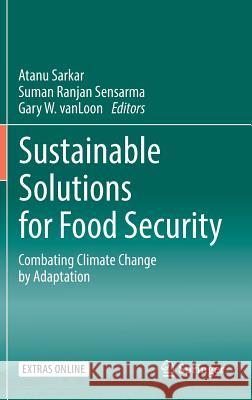Sustainable Solutions for Food Security: Combating Climate Change by Adaptation » książka
topmenu
Sustainable Solutions for Food Security: Combating Climate Change by Adaptation
ISBN-13: 9783319778778 / Angielski / Twarda / 2019 / 549 str.
This volume is the first centralized source of technological and policy solutions for sustainable agriculture and food systems resilience in the face of climate change.











